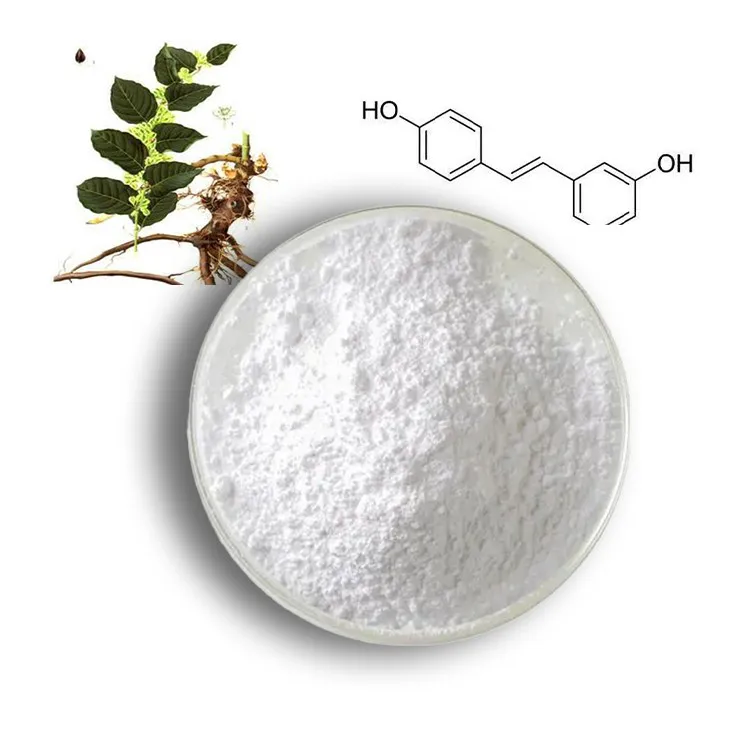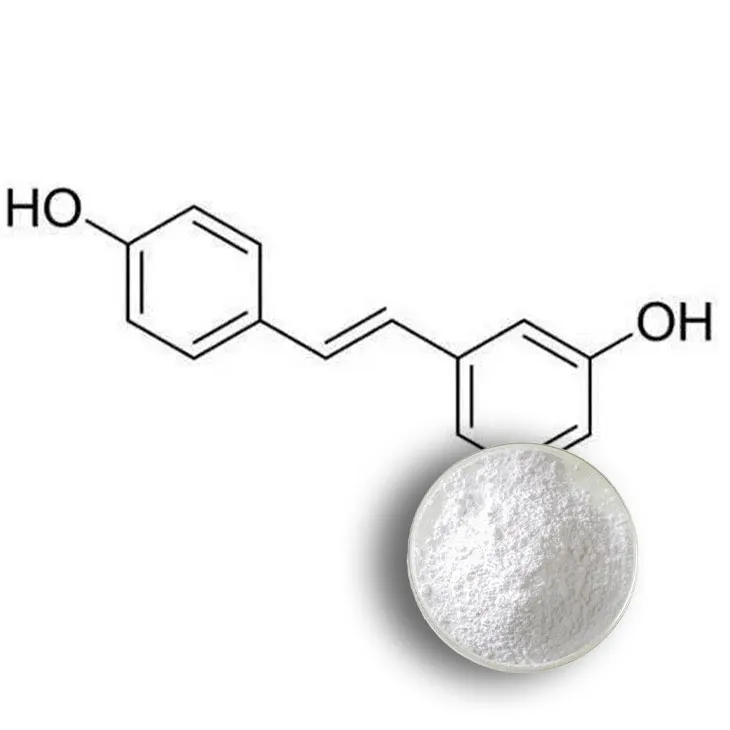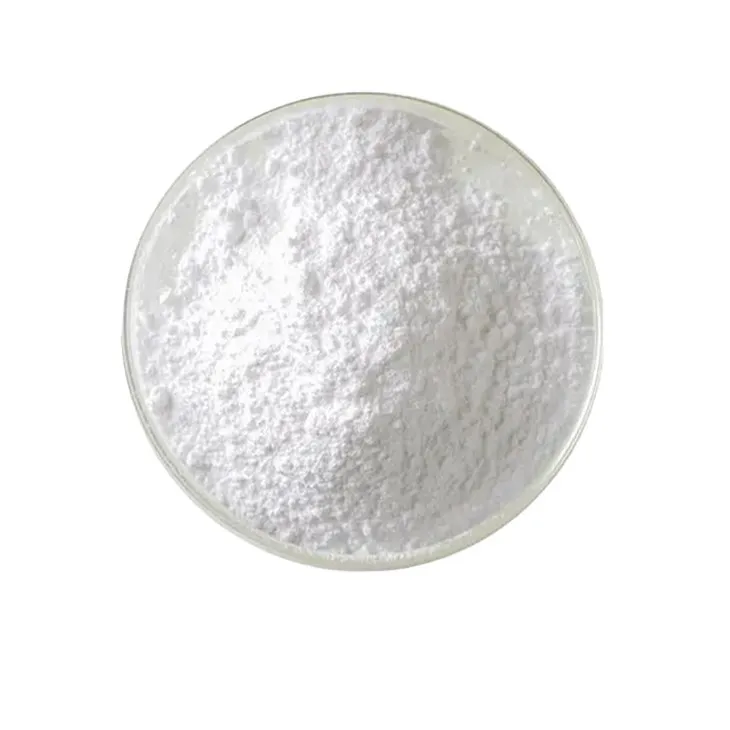- 0086-571-85302990
- sales@greenskybio.com
Resveratrol extract: What are its benefits and how to take it?
2024-11-11

1. Introduction
Resveratrol is a natural compound that has gained significant attention in recent years due to its potential health benefits. It is found in various plants, such as grapes, berries, and peanuts. Resveratrol extract is a concentrated form of this compound, which is often used in supplements. In this article, we will explore the benefits of Resveratrol extract and how to take it safely and effectively.

2. Benefits of Resveratrol extract
2.1 Cardiovascular Health
One of the most studied benefits of resveratrol is its positive impact on cardiovascular health. Resveratrol can help promote healthy blood flow by several mechanisms. For example, it may relax blood vessels, allowing blood to flow more easily. This can be beneficial in reducing blood pressure, especially in individuals with mild hypertension.
Moreover, resveratrol has been shown to have an effect on cholesterol levels. It may help in reducing low - density lipoprotein (LDL) cholesterol, which is often referred to as "bad" cholesterol. By decreasing LDL cholesterol and potentially increasing high - density lipoprotein (HDL) cholesterol, or "good" cholesterol, resveratrol can contribute to a healthier lipid profile. This, in turn, may lower the risk of developing heart disease, heart attacks, and strokes.
2.2 Anti - Aging Properties
Resveratrol also has potential anti - aging effects. It is believed to act as an antioxidant, protecting cells from damage caused by free radicals. Free radicals are unstable molecules that can cause oxidative stress in the body, which is associated with aging and various diseases.
At the cellular level, resveratrol may help in maintaining the integrity of cells. It can protect the DNA within cells from damage, which is crucial as DNA damage accumulates with age and can lead to mutations and cell dysfunction. Additionally, resveratrol may play a role in promoting the activity of sirtuins, a group of proteins that are involved in regulating cellular processes related to aging.
2.3 Anti - Inflammatory Effects
Chronic inflammation is associated with many health problems, including heart disease, diabetes, and certain cancers. Resveratrol has shown anti - inflammatory properties in various studies.
It can inhibit the production of inflammatory cytokines, which are signaling molecules that play a role in the inflammatory response. By reducing inflammation, resveratrol may help in preventing or managing chronic diseases. For example, in some animal studies, resveratrol has been shown to reduce inflammation in the joints, which could potentially be beneficial for individuals with arthritis.
2.4 Other Potential Benefits
There are other potential benefits of resveratrol that are still being explored. Some studies suggest that it may have a role in improving brain health. It could potentially protect neurons from damage and may be beneficial in neurodegenerative diseases such as Alzheimer's and Parkinson's, although more research is needed in this area.
Resveratrol may also have an impact on metabolic health. It could help in regulating blood sugar levels, which may be beneficial for individuals with diabetes or those at risk of developing diabetes. Additionally, some research indicates that resveratrol may have anti - cancer properties, although this is a complex area and more studies are required to fully understand its role in cancer prevention and treatment.

3. Natural Sources of Resveratrol
Before considering resveratrol supplements, it's important to note that resveratrol can be obtained from natural food sources. One of the richest sources is red grapes, especially in the skin. Red wine also contains resveratrol, but it should be consumed in moderation due to the alcohol content.
Berries such as blueberries, raspberries, and cranberries also contain resveratrol, although in smaller amounts compared to grapes. Peanuts and some other nuts also have resveratrol. Incorporating these foods into your diet can be a natural way to increase your resveratrol intake.

4. Resveratrol Supplements
4.1 Forms of Supplements
Resveratrol supplements are available in different forms. The most common forms are capsules and tablets. These are convenient for consumption and are typically formulated to provide a specific dose of resveratrol.
There are also liquid forms of resveratrol supplements available. Liquid supplements may be absorbed more quickly in the body compared to capsules or tablets, but they may also have a different taste and may require more careful measurement of the dose.
4.2 Dosage Considerations
The appropriate dosage of resveratrol can vary depending on several factors, including age, health status, and the reason for taking the supplement. There is no one - size - fits - all dosage for resveratrol.
In general, studies have used different dosages ranging from a few milligrams to several grams per day. However, it's important to note that high - dose resveratrol supplementation may not always be safe or necessary. Excessive intake of resveratrol may cause side effects such as digestive problems, including nausea, diarrhea, and abdominal pain.
4.3 Quality and Purity of Supplements
When choosing a resveratrol supplement, it's crucial to consider the quality and purity of the product. Look for supplements that are manufactured by reputable companies. Check for third - party testing or certifications, which can ensure that the supplement contains the stated amount of resveratrol and is free from contaminants.
Some supplements may contain other ingredients in addition to resveratrol. It's important to read the label carefully to understand what these ingredients are and whether they may interact with any medications or health conditions you have.

5. Precautions and Considerations
5.1 Consultation with a Healthcare Professional
Before starting any resveratrol supplementation, it is highly advisable to consult a healthcare professional. A doctor or a registered dietitian can assess your individual health status, including any existing medical conditions, medications you are taking, and your overall diet and lifestyle.
They can then provide personalized advice on whether resveratrol supplementation is appropriate for you and, if so, what the recommended dosage should be. This is especially important for individuals with underlying health conditions such as liver or kidney disease, as well as those who are pregnant or breastfeeding.
5.2 Potential Interactions
Resveratrol may interact with certain medications. For example, it may interact with blood - thinning medications, increasing the risk of bleeding. It could also interact with medications that are metabolized by the liver, potentially affecting the effectiveness or safety of those medications.
If you are taking any medications, it's essential to inform your healthcare provider before starting resveratrol supplementation. They can check for potential interactions and adjust your treatment plan if necessary.
5.3 Side Effects
As mentioned earlier, resveratrol supplementation may cause side effects, especially at high doses. In addition to digestive problems, some individuals may experience allergic reactions to resveratrol or other ingredients in the supplement.
If you experience any adverse effects after starting resveratrol supplementation, stop taking it immediately and consult your healthcare provider.
6. Conclusion
Resveratrol extract has a range of potential health benefits, including benefits for cardiovascular health, anti - aging, and anti - inflammatory effects. It can be obtained from natural food sources, but resveratrol supplements are also available for those who may need an additional boost.
However, it's important to approach resveratrol supplementation with caution. Consult a healthcare professional, consider the quality of the supplement, and be aware of potential side effects and interactions. By taking these precautions, you can make an informed decision about whether resveratrol is right for you and how to incorporate it into your health routine.
FAQ:
What is resveratrol extract?
Resveratrol extract is a substance that has been studied for its various health - promoting properties. It is often sourced from certain plants and can be processed into different forms for consumption.
How does resveratrol extract improve cardiovascular health?
Resveratrol extract promotes healthy blood flow and helps in reducing cholesterol levels. These actions together may contribute to a decreased risk of heart problems.
Can resveratrol extract really help with anti - aging?
Yes, it may play a role in anti - aging. Resveratrol has the ability to protect cells from damage, which is one of the mechanisms associated with anti - aging effects.
What are the different forms of resveratrol supplements?
Resveratrol supplements are available in forms like capsules and tablets. These forms make it convenient for people to consume the extract as a part of their health routine.
Why should one consult a healthcare professional before taking resveratrol supplements?
Consulting a healthcare professional is advisable before starting resveratrol supplementation. They can help determine the appropriate amount based on an individual's health status, as different people may have different requirements and potential interactions with other medications or health conditions.
Related literature
- Resveratrol: A Review of its Anti - Aging and Anti - Cancer Properties"
- "The Role of Resveratrol in Cardiovascular Health: A Comprehensive Review"
- "Resveratrol: Sources, Bioavailability, and Potential Health Benefits"
- ▶ Hesperidin
- ▶ citrus bioflavonoids
- ▶ plant extract
- ▶ lycopene
- ▶ Diosmin
- ▶ Grape seed extract
- ▶ Sea buckthorn Juice Powder
- ▶ Beetroot powder
- ▶ Hops Extract
- ▶ Artichoke Extract
- ▶ Reishi mushroom extract
- ▶ Astaxanthin
- ▶ Green Tea Extract
- ▶ Curcumin Extract
- ▶ Horse Chestnut Extract
- ▶ Other Problems
- ▶ Boswellia Serrata Extract
- ▶ Resveratrol Extract
- ▶ Marigold Extract
- ▶ Grape Leaf Extract
- ▶ blog3
-
High purity olive leaf extract
2024-11-11
-
Lavender oil extraction method
2024-11-11
-
100% organic virgin sea buckthorn fruit oil
2024-11-11
-
Lotus leaf extract powder factory in China
2024-11-11
-
China aged garlic extract supplier
2024-11-11
-
Deer antler extract powder manufacturer
2024-11-11
-
Saw palmetto extract vs whole herb
2024-11-11
-
Almond Extract Powder
2024-11-11
-
Mulberry leaf Extract
2024-11-11
-
Eucommia Ulmoides Extract
2024-11-11
-
Sophora Flavescens Root Extract
2024-11-11
-
Dan Shen Root Extract/Salvia Root Extract
2024-11-11
-
Medicinal Marshmallow Extract
2024-11-11
-
Epimedium extract powder
2024-11-11
-
Bayberry Extract
2024-11-11
-
Artichoke Extract
2024-11-11
-
Grapefruit Seed Extract Powder
2024-11-11





















